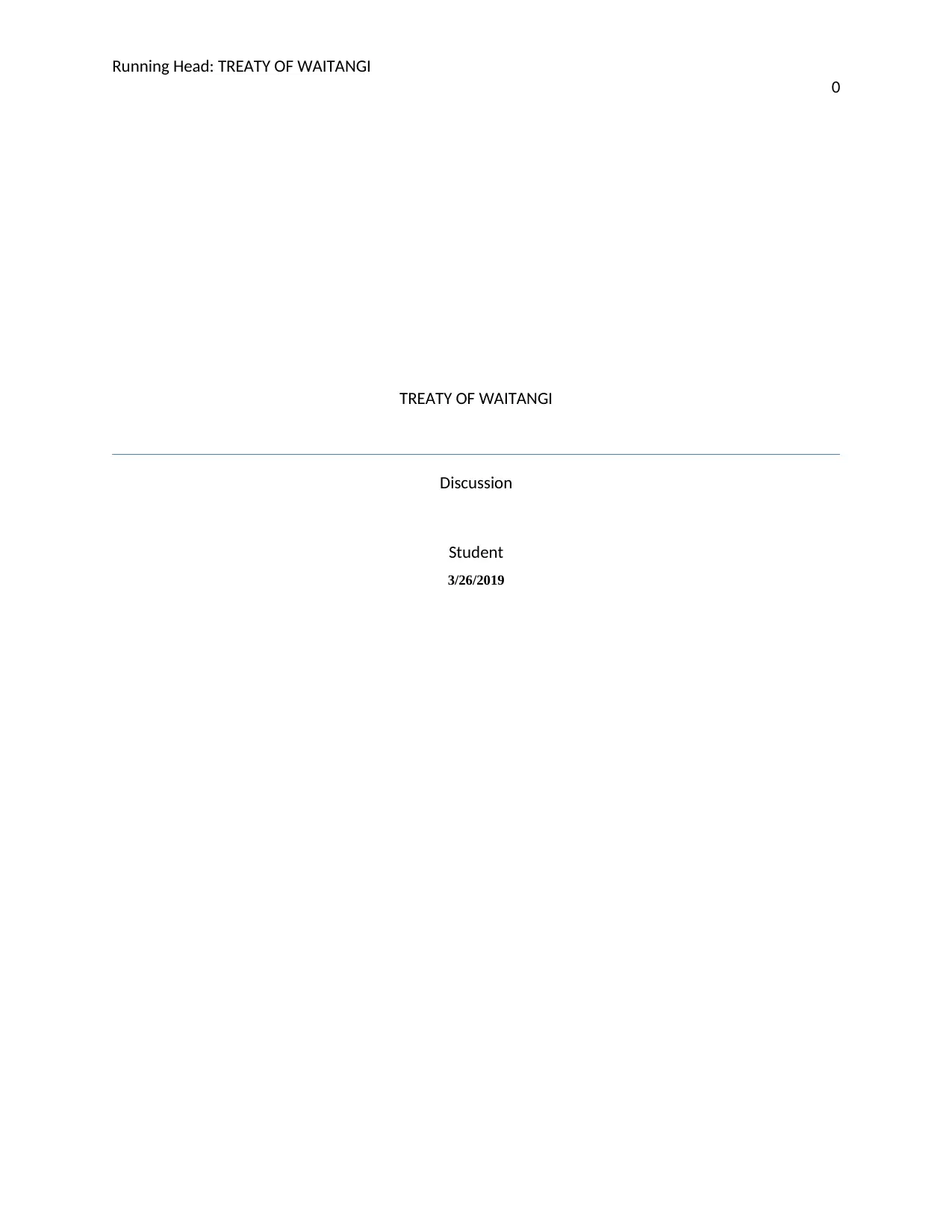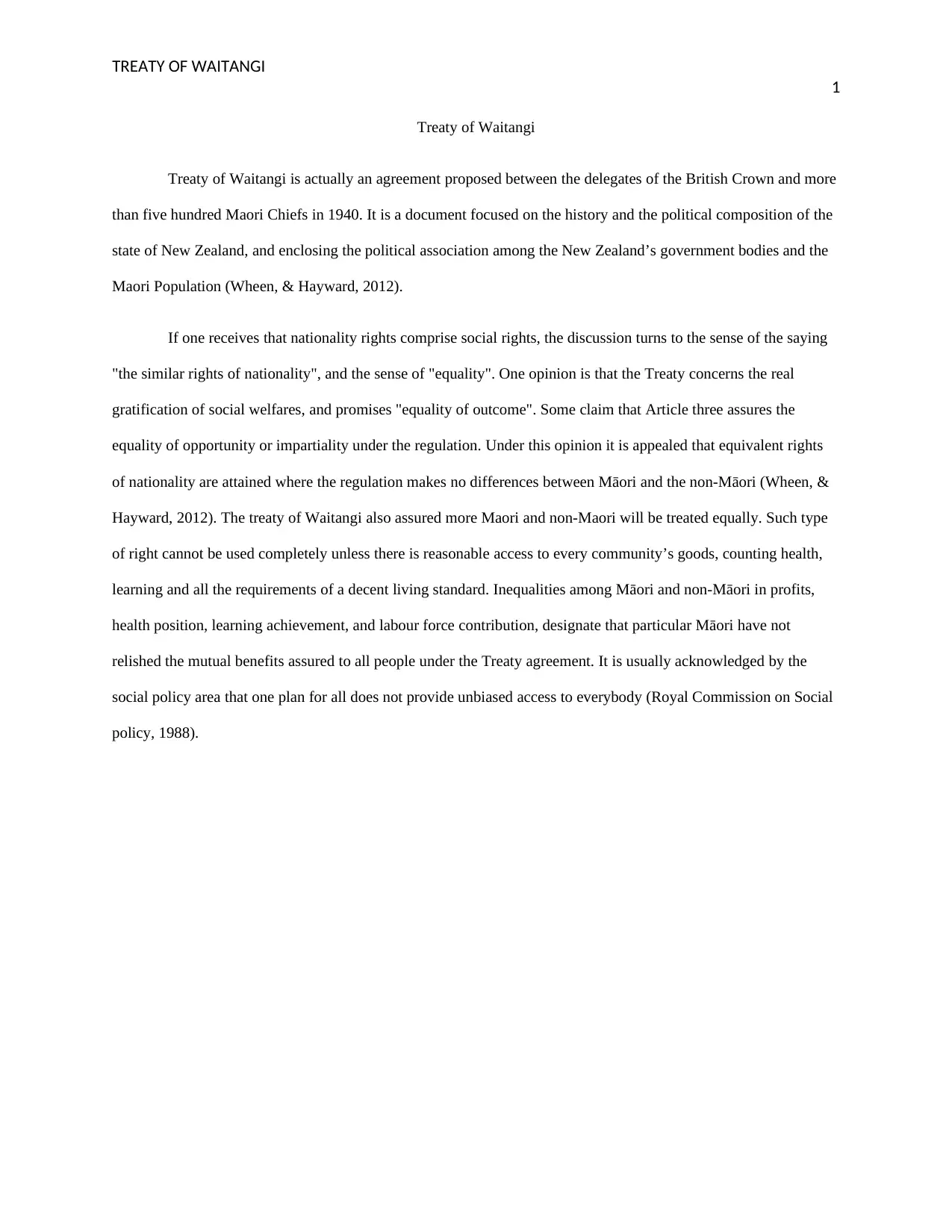Exploring the Treaty of Waitangi: Rights, Equality, and Social Welfare
VerifiedAdded on 2023/04/19
|3
|378
|399
Essay
AI Summary
This essay provides a discussion on the Treaty of Waitangi, an agreement between the British Crown and Maori Chiefs in 1840, shaping New Zealand's political landscape and the relationship between the government and the Maori population. It explores the concept of nationality rights, focusing on the interpretation of "similar rights of nationality" and "equality" within the treaty. Some view the treaty as ensuring social welfare and equality of outcome, while others see it as guaranteeing equality of opportunity and impartiality under the law. The essay highlights the importance of equal access to resources like healthcare and education for all communities, emphasizing that disparities between Maori and non-Maori populations indicate a failure to deliver the mutual benefits promised by the treaty. It concludes by acknowledging the need for tailored social policies to ensure fair access for everyone.
1 out of 3










![[object Object]](/_next/static/media/star-bottom.7253800d.svg)